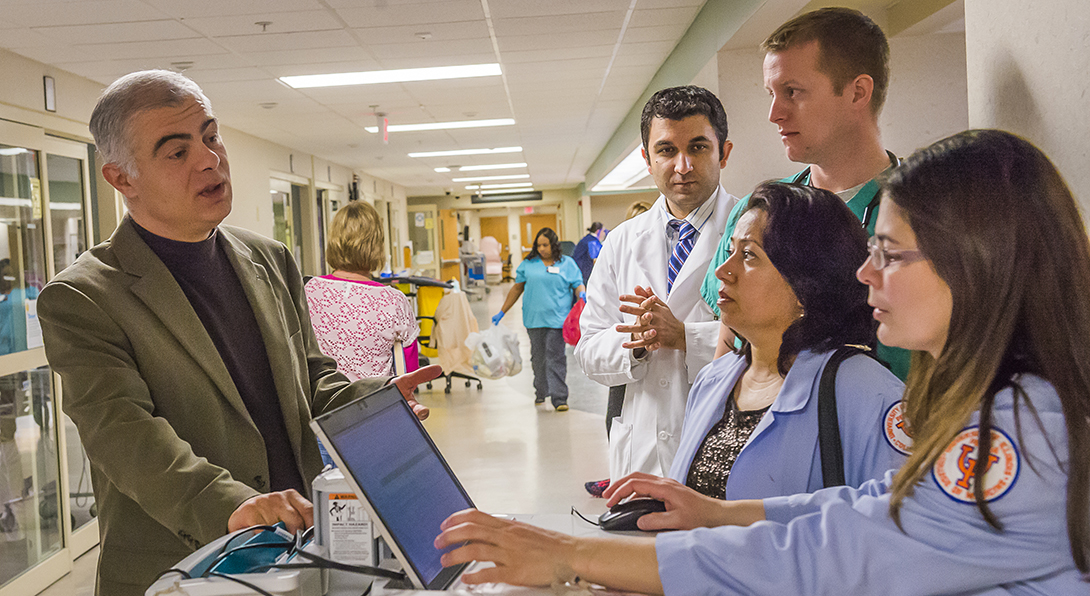Neurology Residency

The Department of Neurology offers an ACGME-accredited 4-year program in adult neurology.
The goal of this program is to provide high quality clinical training in both inpatient and outpatient care, encompassing general neurology and its various sub-specialty fields.
Links Heading link
Neurology Residency Video Heading link
What We Offer Heading link
Clinical training
Our robust inpatient experience focuses on mastery of core competencies, but also allows our residents to see unique cases. Early in the training, we provide a boot camp to prepare our residents for neurologic emergencies. This utilizes synchronous and asynchronous teaching, as well as simulation, in order to prepare our residents for these emergency situations prior to hands-on patient care.
In the outpatient setting, the residents are exposed to a wide variety of general neurologic and subspecialty conditions in the continuity clinic and elective rotations.
Research & other opportunities
Our faculty are participating in investigator-initiated research, clinical trials, and quality improvement projects with involvement from our residents. We also host patient care symposiums and community outreach to interact with our patients outside of the clinical setting.
Resident wellness & autonomy
Resident wellness has been a focus, and we host wellness retreats frequently throughout the year. Residents work closely with faculty and gain increasing autonomy throughout the residency. Our goal is to develop residents who are excellent clinicians and life-long learners.
Applying to the Residency Heading link
We accept U.S. and osteopathic medical school graduates, as well as foreign medical graduates.
Application must-haves
Qualified applications should include:
- Med school transcript
- Dean’s letter
- Personal statement
- USMLE or COMLEX transcript
- Step 1 minimum 215 and COMLEX 1 minimum 525
- COMLEX/Step 2, 2CS, and 3 are not required to apply, but completion of Steps 2, 2CS and COMLEX 2, 2CS are necessary prior to rank day.
- 3 letters of recommendation, preferably one from a neurologist
- Medical school graduation after 2016
Please note that our institution sponsors H1-B and J1 visas. H1-B requires that all USMLE scores are available upon match day. J1 candidates must have received ECFMG certification prior to rank day.
What to know
Many of our current residents are International Medical Graduates. In addition, the presence of a major university such as Bradley University and a Fortune 100 company like Caterpillar add tremendous diversity to the Peoria community as a whole.
However, Acceptable applicants will have completed a minimum of one month, hands-on, in-person clinical experience in the U.S. in order to be considered for an interview.
Visa sponsorship
We sponsor J1 and H1B visas routinely for our categorical residency program. If you are requesting an H1B visa, you must have passed the USMLE. Step 3 exam prior to the date that our program is required to submit its rank order list to NRMP.
International letters of recommendation
Letters of recommendation should be from individuals who know you well and have worked with you. We understand that for some, it would be difficult to get a letter of recommendation from a physician practicing in the United States. It is recommended that at least two of your letters are from physicians who have been able to observe your clinical skills.
Make sure your scores meet our standards
Our program requires all applicants to have taken/passed USMLE or COMLEX 1 with a score of 215/450 respectively.